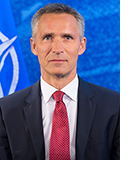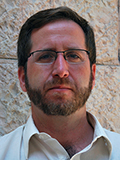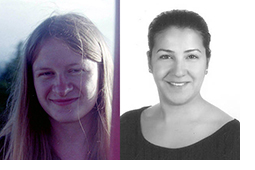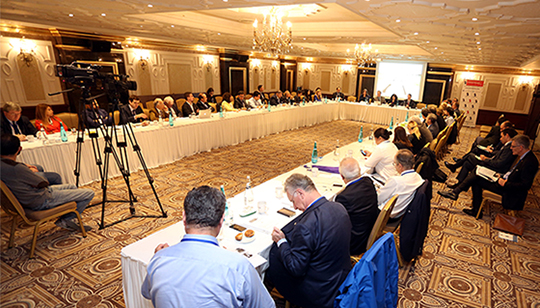| If you can't view the email, please click here. |
|
|
|
From the Desk of the Editor
Süreya Martha Köprülü
“This issue of TPQ explores many pressing, transatlantic challenges: from the global fight against ISIL to the ongoing conflict in Ukraine, and from information warfare to energy security and geopolitics. Confronting hybrid threats of concern to the entire international community is one of the key themes highlighted in this issue. In assessing the increasingly complex security landscape, our authors take stock of the pitfalls and opportunities for leadership efforts on the international, inter-regional, and domestic levels.”
“With the inauguration of my first editorial for TPQ’s 55th issue, I would be remiss not to acknowledge Nigar Göksel’s 13-year tenure as Editor in Chief. Under her direction, TPQ has evolved into a strong platform for constructive and critical debates on Turkey and its neighborhood, all the while maintaining its independence through changing political climates.”
|
|
NATO-Russia Relations & Regional Instability
Interview with Jens Stoltenberg 
“Russia’s illegal and illegitimate annexation of Crimea marked the first time since the Second World War that one European nation took part of another by force. In doing so, Russia has undermined decades of work by the international community to create a Europe that is whole, free, and at peace.”
“I remain concerned that the Russians have targeted Syrian opposition groups and that they are supporting President Bashar al-Assad’s regime. I call on Russia to play a constructive and cooperative role in the fight against ISIL. Supporting the Assad regime is not a constructive contribution.”
“In the Alliance’s first expansion into eastern Europe since 2009, NATO Foreign Ministers issued an invitation to Montenegro to begin accession talks on December 2nd. This is a historic decision, which will further reinforce the security and stability of the Western-Balkans and contribute to our vision of a Europe whole, free and at peace.”
|
|
|
The Separation of Church and State Under the “Islamist Protocol”
Lotfi Maktouf

“With Islam taking center stage in current affairs and beyond, it appears that the application of the Western concept of the separation of Church and State is simply insufficient for truly apprehending the conceptual contours of the relationship between Islam and the State.”
“The Islamist Protocol rests upon two unshakable pillars: the application of Sharia law as sole source of legislation, and the adoption of the caliphate as a political system based on a system of cooptation, completely unrelated to popular vote.”
“For a certain period, the Islamist landscape was split between two groups, both espousing the agenda of the Islamist Protocol. The first, the Muslim Brotherhood, gives precedence to the concept of moderate jihad, adapted to contemporary realities. The second, Al Qaeda, implacably opposed to the Brotherhood and calling them manipulative traitors, abides by the hardcore concept of jihad, and aims at nothing short of liberating the land of Islam.”
|
|
|
NATO: An Alliance in the Midst of Information Wars
Barbora Maronkova

“The current debate on hybrid warfare is a result of Russian actions in Ukraine (2014), including most tools of national power such as diplomatic, information, military, economic, financial, intelligence, and law enforcement elements.”
“A year after the Wales Summit declaration, NATO has already progressed extensively in its efforts to counter Russian propaganda. The Alliance is doing this not with more propaganda, but rather by countering fiction with facts and providing continued transparency (…) For example, a webpage entitled ‘NATO-Russia: Setting the Record Straight’ was set up on the NATO website to provide fact sheets that debunked Russia’s myths and illustrated NATO’s actions with regards to the crisis in Ukraine.”
|
|
|
Hybrid War and the Eastern Partnership: Waiting for a Correlation
Hanna Shelest

“As the Eastern Partnership states belong – in Russia’s opinion – to its natural sphere of influence, any attempts to exit from that sphere are perceived as a threat. It is worth mentioning that, in contrast to the West itself, Russia has never separated NATO and the EU enlargements, presuming that one cannot come without the other.”
“A revision of the Eastern Partnership program presents a chance to enhance the effectiveness of the program not only by answering the needs of the EU to establish institutionalized relations with the post-Soviet states without membership perspective, but also to promote a joint vision on hybrid warfare and a response to other common challenges.”
|
|
|
TANAP and the Semi-Encirclement of Iran
Micha’el Tanchum

“Through its energy diplomacy based on the Trans-Anatolian Pipeline (TANAP), Turkey has created an arc of strategic energy relationships with the Kurdistan Regional Government (KRG), Azerbaijan, and Turkmenistan that is tantamount to the semi-encirclement of Iran.”
“It is in Turkey’s interest to pursue – if it can achieve a sufficient level of strategic confidence with Israel – the development of an undersea pipeline from the Leviathan natural gas field to Turkey. At the same time, to ameliorate the possible threat Iran poses to the realization of the Turkmenistan and KRG pipeline projects, Turkey has an interest in encouraging Azerbaijan to sell an equity stake in TANAP to Iran.”
|
|
|
Turkey’s Natural Gas Strategy
Emre Tunçalp

“The long-stalemated conflict in Cyprus and Turkey’s uneasy relationship with Israel since the Mavi Marmara incident in 2010 present daunting political roadblocks to any Turkish involvement in the offshore discoveries in the region. However, despite all the rhetoric about geopolitics, it was instead commercial issues in Cyprus, and domestic policy and regulatory issues in Israel that proved to be the biggest impediments to the development of natural gas.”
“Lack of competition and transparency in the Turkish domestic market, coupled with infrastructure issues are main hurdles that need to be overcome. Finally, BOTAŞ’s monopoly needs to be broken up. There are no immediate solutions to these problems and no easy ways to establish the market conditions necessary for Turkey to become an energy hub or a reliable transit country.”
|
|
|
Regional Implications of the Al Qaeda-ISIL Struggle
Kristine Margvelashvili & Z. Aslı Elitsoy

“With the rise of ISIL as an extremist group contending for the leadership of global jihad, the competition and outright hostility between Al Qaeda and ISIL became apparent. First and foremost, both groups are part of the same global movement promoting Sunni jihadist ideology.”
“The Caucasus is one of the territories ISIL currently declares as part of their Islamic State. (…) Since several hundred militants have been recruited by ISIL to fight in Syria from Chechnya and Georgia’s Pankisi Gorge, it is important that Georgian and Russian governments, together with Turkey, cooperate in order to diminish the threat those fighters pose to regional security.”
|
|
|
Disrupting ISIL Governance
Tomáš Kaválek

“For long-term strategic reasons, Western airstrikes do not often target oil infrastructure, such as refineries in ISIL controlled territories. ISIL might be a problem, but destroying major oil infrastructure would prove costly to rebuild after the conflict comes to an end.”
“The governance performance of ISIL can be damaged by lowering its capability to provide services, as well as decreasing smuggling and trade with ISIL-controlled areas. Cutting off ISIL’s access to supplies and goods will push the group to further extort its poor population to cover its losses, and as a result, the people will be less compliant.”
|
|
|
Where is the Black Sea Region in Turkey’s Foreign Policy?
Sophia Petriashvili

“The major focus of Turkey’s foreign policy vis-à-vis the Black Sea region is mainly linked to the preservation of the status quo in the maritime domain. This would include not only keeping the Montreux Convention requirements valid and in force, but also preventing a penetration of any other power into the region that might possibly change the so-called regional balance, thereby questioning Turkey’s sovereign power over the Turkish Straits.”
“Without a clear Black Sea regional conception Ankara cannot expect to be a leader for the region, nor can it effectively contribute to the development and implementation of Black Sea regional policies.”
|
|
|
The Leadership Landscape in the Mediterranean
Stefanos Vallianatos

“The Eurozone crisis and the consequent harsh austerity measures and rapid reforms that were adopted to deal with it – a top to bottom procedure with little, if any, social dialogue and discourse – had a profound impact on political structures and leadership paradigms in the Mediterranean countries.”
“The Arab uprisings (including the Gezi Park protests), which were instigated by the youth, were a statement against autocratic behaviors and tendencies. Demonstrators demanded a different, more inclusive, accountable, and democratic fate. In that respect, they did present a new paradigm, one that proved effective in initially generating momentum: a leaderless movement.”
|
|
|
Regional Natural Gas Game Changers
TPQ Event Analysis

“Several key takeaways can be derived from this year’s discussion regarding the current natural gas landscape. First, regardless of EU diversification goals, Russia-EU energy cooperation will continue to be a reality. However, there is still a clear and present need to reduce energy vulnerabilities for the EU and its neighborhood in order to offset Russian dominance of the sector. To that end, US LNG exports are a true game-changer with the ability to reinforce the EU’s energy security.”
“Where Turkey is concerned, the SGC has opened up new opportunities for satisfying its demand. However as the panelists pointed out, the possibility of new resources – besides to-be-developed sources from Azerbaijan – joining the SGC is unlikely in the medium-term.”
|
|
|
Have a counter-argument to one of the authors’ views?
Share it on TPQ’s Debates section. For guidelines click here. |
|
|
The Premium Corporate Sponsor of this Issue
 |
|
|
This Issue's Sponsor
 |
|
|
Thanks to our partners |
 |
 |
|
|
 |
Address: Kadir Has Üniversitesi Cibali Kampüsü Sosyal Sorumluluk Binası ( Beyaz Ev )
Küçük Mustafa Paşa Mah. Seferikoz Sok. No:14 Kat.1 Fatih- İstanbul
Phone: +90 212 621 4442 - +90 212 621 9258 Fax: +90 212 531 8718 info@turkishpolicy.com
Click to unsubscribe |
|
|
